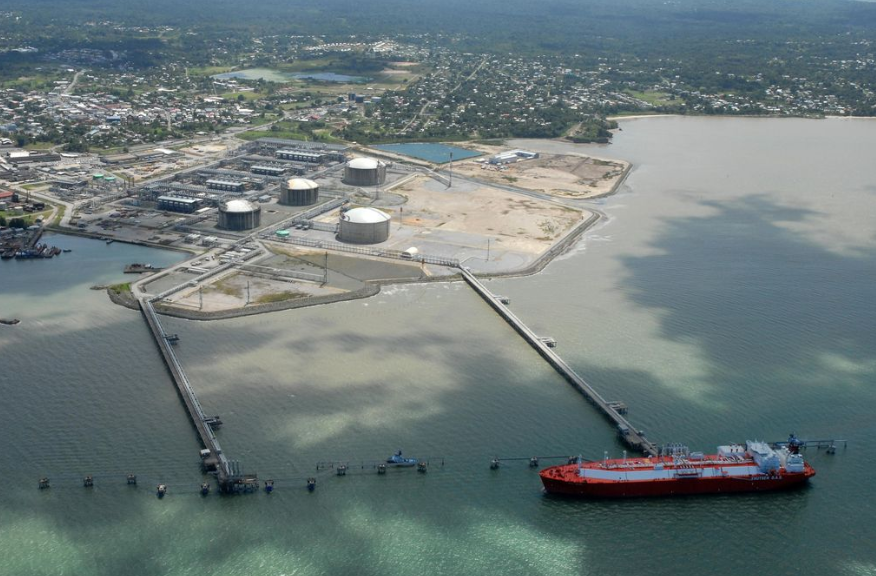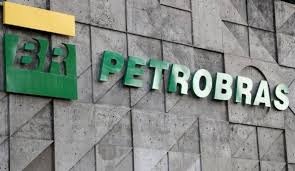
(Trinidad Guardian, 13.May.2021) — The future of Atlantic LNG’s operations and, more specifically, the status of Train 1 is still being discussed by stakeholders. This even though the National Gas Company of T&T Ltd (NGC) has already spent tens of million of dollars to restart the Train 1 plant.
Minister of Energy Stuart Young, in response to questions about the LNG plant during the signing of a gas sales agreement between the NGC and Trinidad Nitrogen Company Ltd (Tringen), confirmed that a final decision has not been made.
“Right now the Government is in some very sensitive negotiations and discussions with the shareholders of Atlantic as we look forward to the future of what Atlantic looks like,” said Young in response to a question posed to him by Guardian Media.
Young said the LNG market remained very “vibrant” and he regularly monitored activity in the sector.
“You would be aware that the whole global scheme including LNG is a very vibrant one and a changing one.
“So, for example, this morning, one of the first things I looked at is current Russian investments in the Arctic and the construction of further trains to deal with LNG,” he said, “All of these types of things change the global LNG market. And so these are some of the things that we’re looking at as T&T continues to be very competitive in the LNG environment.”
Train 1 first came into operations in Point Fortin back in March 1999, and produced LNG for the first time a month later paving the way for the lucrative LNG industry in the energy sector. Since then Atlantic has built three more LNG plants, called in the sector “trains,” in the South Western Peninsula.
However, over the past three years, the continued operation of the Train 1, as well as the preservation of jobs attached to it, have come into focus.
In November 2018, Government had announced plans to extend Train 1 for five more years beyond its 20-year life, which would have come to an end in April 2019.
Concern over the future operations of Train 1 intensified 2019, when BPTT could not assure a continued gas supply to the train. However, amid concerns raised then, Imbert assured that operations would continue.
In December 2020, late Minister of Energy Franklin Khan also gave assurances that Train 1 would not be mothballed at the start of this year.
In his contribution before the Parliament, Khan said, “Train 1 will continue to operate in 2021 and will be part of wider negotiations, which have been taking place among the Atlantic LNG shareholders to form one unitised facility encompassing all four Trains.”
Khan said NGC would facilitate a turnaround of Atlantic Train 1 and would keep it in “operations ready mode” for all of 2021 into 2022.
Young could not say if operations would be reduced of even expanded at this time.
“With respect to the future of Atlantic, work has been done at Train 1, but as we look forward at the future of Atlantic, one of the conversations, obviously, taking place is, are we going to be a four train Atlantic going forward? Or are we going to be a three train Atlantic going forward? Is there potential gas down the line that may even add another train when that gas comes to market? So, these are some of the types of conversations taking place and at the appropriate time, we’ll be able to say more,” said Young.
However, former Energy Minister Kevin Ramnarine did not share such a positive outlook, as he questioned the ability of Train 1 to resume operations after a significant period of down time.
Ramnarine said Train 1 had not been in operation since last November.
“In the history of this country’s LNG industry, no train has ever been down continuously for seven months. Train 1 has been down continuously for seven months. Train 1 was taken down in November 2020 and its still down,” said Ramnarine, who wondered if this down period could become problematic when production at the train resumes.
“It is, therefore, a concern that given the train has been down for that period of time, there will be issues to restart should gas become available. One of the factors with a train like Train 1 is that it has a lot of rotating equipment. And rotating equipment, if it is not rotating, if it is not in motion and if it is idle for a long period of time it could become compromised,” said Ramnarine, who likened the train to car that has not been parked up for an extended period.
“It is similar to if you have a car and you don’t start your car for seven months, then you going to have issues with the moving parts in your engine. Things might seize,” he said.
His other concern, was the potential supply of gas to Train 1 as he noted that gas supply to Atlantic’s oldest train has been in question for some time.
“Does BP have or does NGC have the gas to supply Train 1?” he asked, noting that given Train 1’s capacity of 492 million cubic feet of gas, it would require half of that to run properly?
“Where is this 246 million cubic feet of natural gas coming from to run train 1?” said Ramnarine, who also noted that Trinidad and Tobago’s overall gas production had dropped significantly.
He estimated that Trinidad and Tobago was currently producing about 2.8 billion cubic feet of gas currently, about billion cubic feet less than it produced in 2015.
“The question is even if the train is ready to restart, where is the gas gonna come from, because the larger issue that has to be addressed is the whole issue of gas production right now. Right now, we are in the doldrums of the last 16 years. Gas production is the lowest right now it’s been since 2004, so the question is where the gas is going to come from in 2021, maybe gas will be available in 2022 for Train 1 to restart,” he said, noting that while there were gas projects currently in the pipeline, they were not likely to improve to current status of gas production in the country until next year.
The concern over the gas supply had indeed formed much of discussion during the Gas Sales agreement between NGC and Tringen, with President of Clean Ammonia – Yara International, Magnus Krogh Ankarstrand noting it was important that his company get a consistent supply of gas from Trinidad.
Notably during the signing, NGC chairman Conrad Enill said the company had to embrace change with a potential shift in focus from production driven to market driven and, as such, we should see T&T as an “integrated player across the natural gas value chain while aggressively pursuing the green energy agenda.”
____________________
By Peter Christopher

